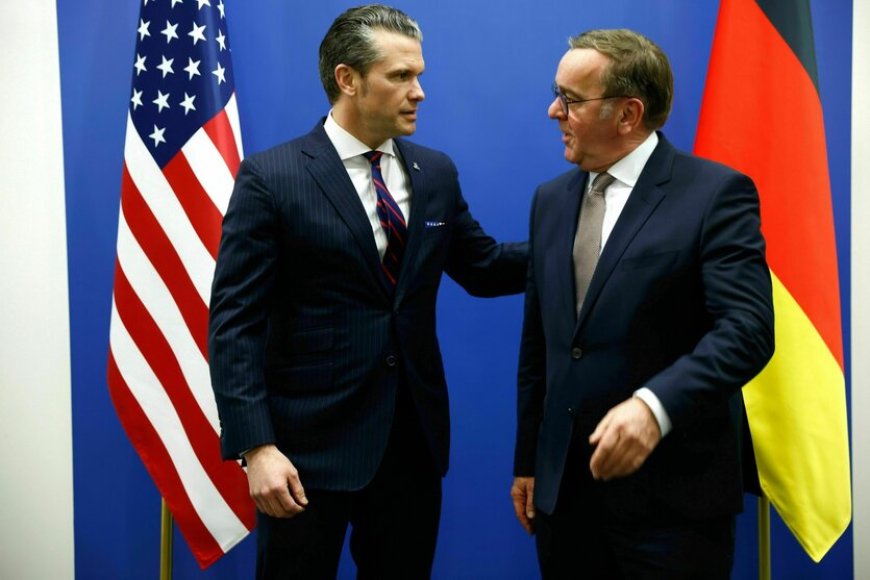Certainties are a thing of the past
US President Trump wants to end the war in Ukraine and is sending the EU to ensure peace. Are the 27 member states up to the task?

And then he relegated the EU to the background: US Secretary of Defense Pete Hegseth gave the European community a real wake-up call during his first visit to Brussels.
He made it clear that the Europeans should now take on the "overwhelming share" of future military and civilian aid for Ukraine. And in doing so, he heralded the change of course by US President Donald Trump that had been feared for months. Trump made it clear in his telephone call with Kremlin chief Vladimir Putin on Wednesday that he wanted to end the war in Ukraine as quickly as possible, whatever the cost.
Putin is likely to be pleased about the rapid events of the past few days – he, who will be negotiating on an equal footing with the US President about the future of Ukraine , and over the head of the country he is attacking.
A scenario that will pose particular challenges for Europeans. Almost three years have passed since the beginning of the Russian invasion, a period that the EU has not used sufficiently to prepare for such a responsibility. It lacks the financial means and a common line.
Simply no money
The problem: Defense is regulated at the national level. The EU wants to set up its own defense fund, but how this will be financed is unclear. The responsibility is also disputed. In addition, many EU countries simply do not have the money for defense.
While the Eastern European states are rearming, Spain and Italy are not even reaching the 2 percent target set by NATO. Germany is also only meeting the target with the help of debt. And EU Defense Commissioner Andrius Kubilius is not getting his concerns across. In order to maintain peace in Europe, we must prepare for war, he keeps repeating.
Specifically, the Lithuanian wants to replenish the ammunition depots in Europe and introduce joint monitoring of the stockpiles. The most recent attempt to create a joint defense fund failed: Instead of dealing with the defense of Ukraine and Europe at the special EU summit in early February, a different topic surprisingly came to the fore: Trump's punitive tariffs.
Two central points
It did not help that NATO Secretary General Mark Rutte, who is considered to be a Trump sympathizer, had previously tried to warn the 27 heads of government and state of the impending escalation of the war. After Trump's phone call with Putin, Ukrainian President Volodymyr Zelenskyj has no choice but to insist on two key points: no bilateral negotiations between the US and Russia , and Europe must be at the negotiating table.
Kaja Kallas is supporting this. The EU foreign policy chief is considered a harsh critic of the Kremlin. In her view, a "deal" between the USA and Russia would not be possible without the Europeans' consent. How the EU and Ukraine will react to Trump's move will also be revealed at the Munich Security Conference, which begins this Friday.
The timing of the phone call between Trump and Putin – shortly before the third anniversary of the Russian war of aggression and shortly before one of the most important international meetings on security policy – is no coincidence. And the move means nothing less than that there will be no going back to normal practices.













































